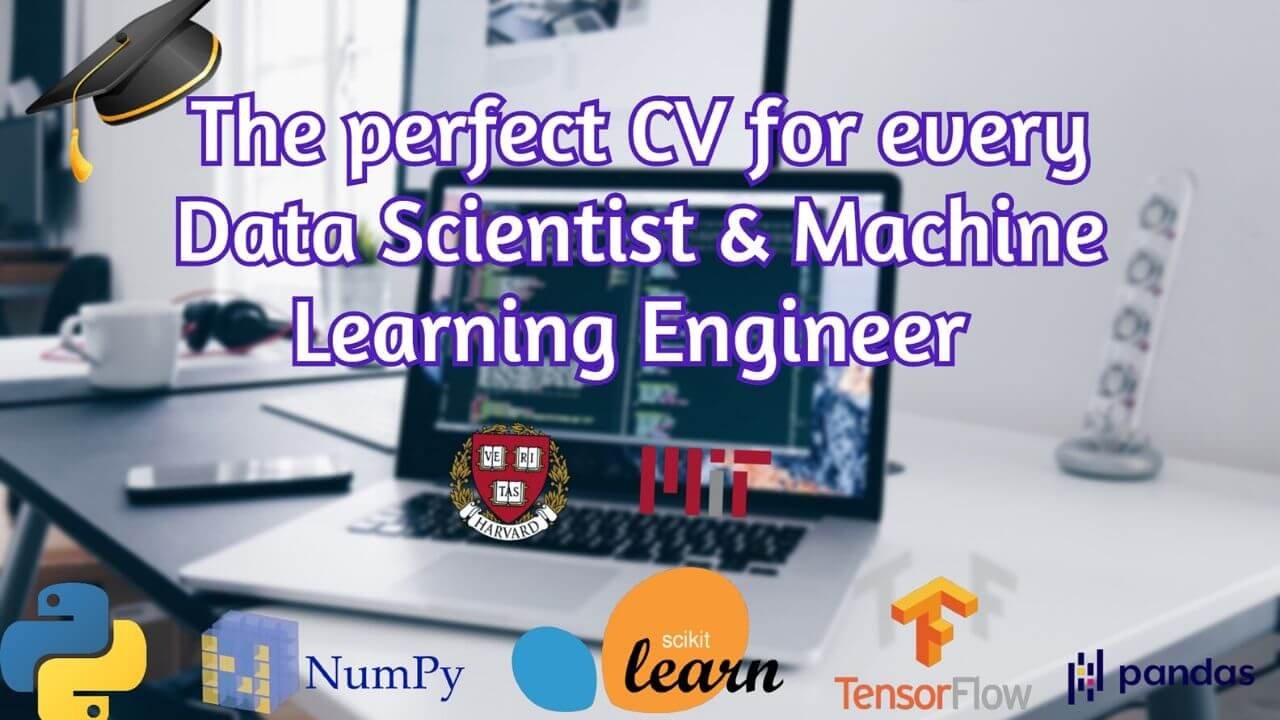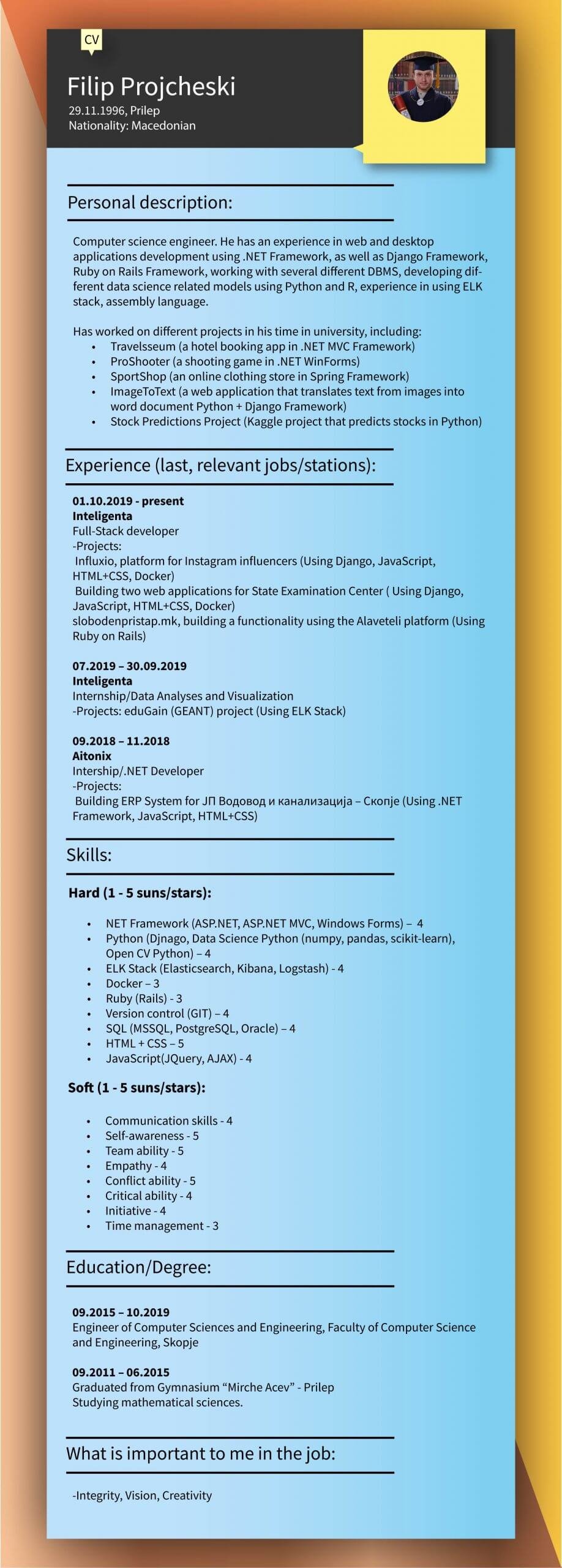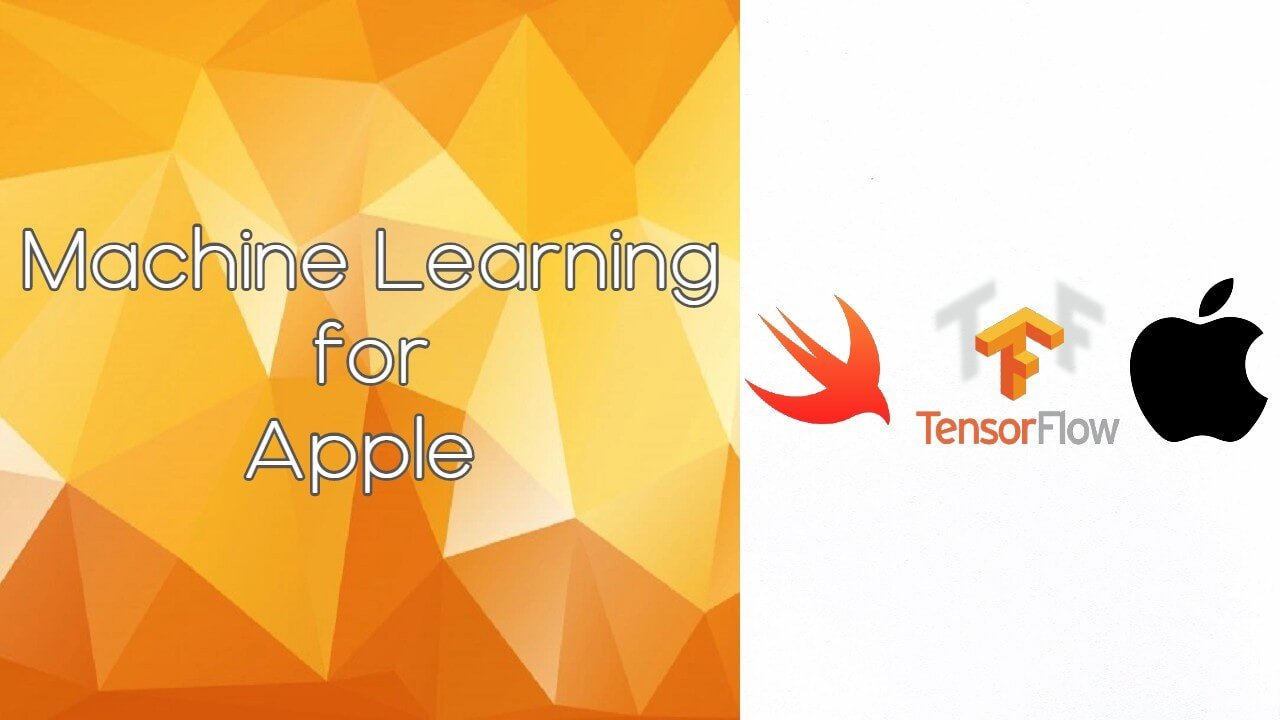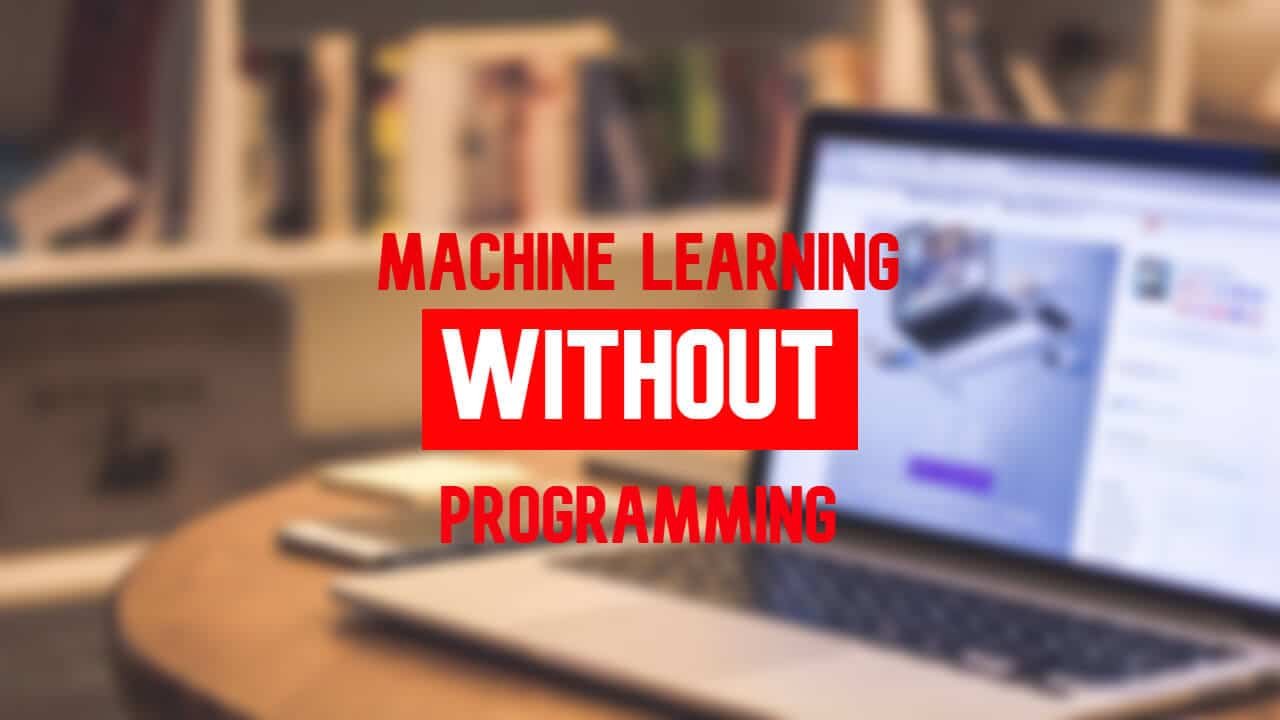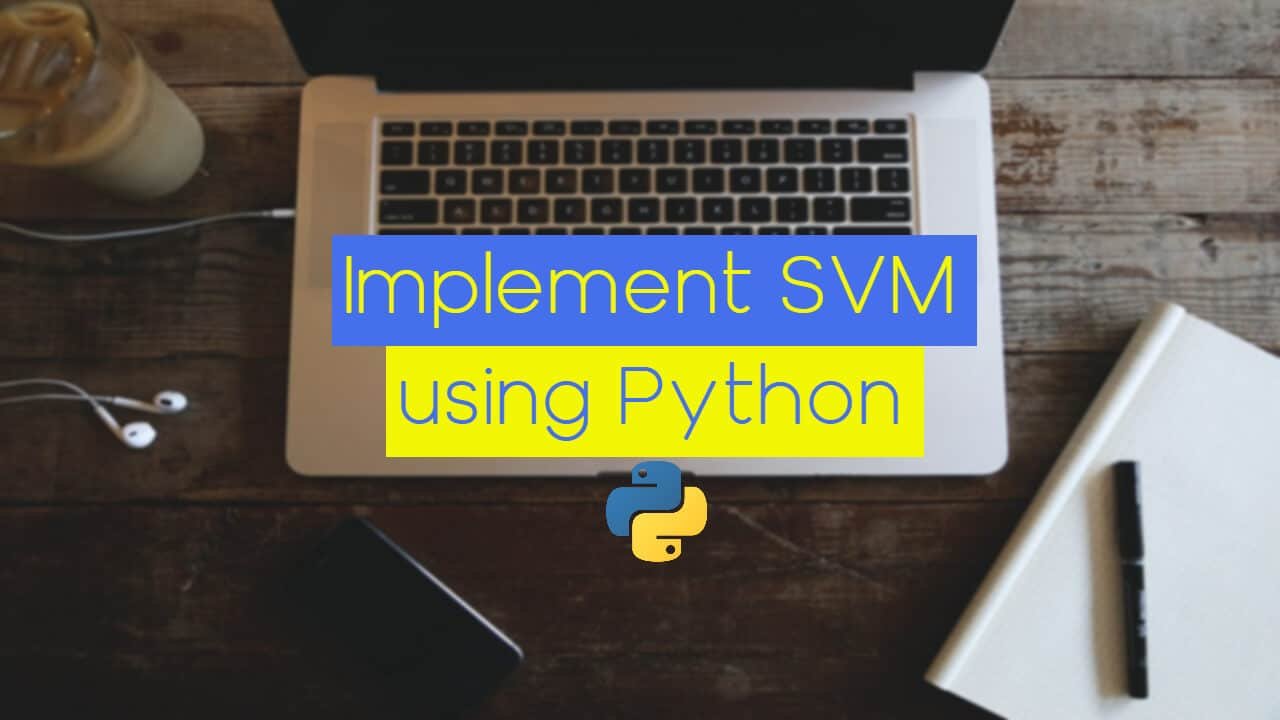We know the jobs in Artificial Intelligence skyrocketed in recent years, and the huge flow of money from every industry brings the salaries up to $100,000 per year which makes these job positions to be desired by everyone.
These job positions however have tons of requirements and not every candidate is suitable for those. There are tons of companies that have a few levels of interviews in order to select the best employee.
Now, before you reach those levels you need to leave a good impression on the recruiter, and the first step of that good impression is your CV (Curriculum vitae).
So, today’s article is going to be about how to write a perfect CV (for Data Scientist or Machine Learning Engineer job position) in order to leave a good impression on the recruiter, so you can continue in the further stages of the interview.
This example is a result of our experience with previous employers.
We have a blog post about job interview tips that will help you get a job as a Data Scientist/Machine Learning Engineer that you can read it too.
How to write a perfect CV
So, the process of writing the CV starts as with every other CV, first, you have to tell who you are, where, are you from, how old are you, etc. After this, you want to list your education degree. But don’t stop just at that, you want to list the things (courses, projects) you were passionate about during your time at university (or high school).
That way you are creating a profile of engineer/candidate they can visualize and can make assumptions about, which will make them ask you questions about the areas you were interested in. I used this and it actually works. The position I was applying was a Data Scientist position but required a good knowledge of Computer Vision as well.
Now I had a little Computer Vision experience at that time, but I was more passionate about Time Series Analyses and Reinforcement Learning. So, since I’ve listed my projects and passions in these areas, we’ve ended up talking about that for the whole interview, instead of the Computer Vision questions, which in the interest of time where just a few and very basic and that made it easier for me.
The courses are also important to be listed if they were something advanced, for example, Calculus 3, or Advanced Natural Language Processing, or Operations Research, or Advanced Algorithms Design, etc. This tells that you were passionate about your education and that you are a hard worker that always goes for a harder and more complex way in order to create a high-quality product. You can even list why you liked these subjects (some areas that made you choose them in the first place).
Then you can list some of the awards you got during your time at university or just the competitions you took part in if you weren’t awarded. This helps a lot since it shows your competitional spirit and desire to win in a highly competitive environment.
It will obviously be helpful if those competitions that you attended to were organized by the same company you apply to. That will show that you have respect and interest in their way of organizing things and that you can easily adapt to their terms, which makes things easier for them.
Next comes the stack of technologies you work with the most. A good way of listing them is by also grading your experience (Python 4/5, SQL 5/5, C++ 3/5). Be honest in the grading, you have to justify your claims latter at the interview.
Our suggestion for you is not to work only with technologies that are used by Data Scientists or Machine Learning Engineers, it is good if you know some level of application development that says that you can create a whole product packed in an application that can be delivered for the users.
There are tons of easy to learn frameworks that came with everything you need to create an application (example: Django, Laravel, .NET, Flask, Node JS, etc.).
After this, you can list your previous job positions or internships at other companies. A good way of organizing this part is by listing the companies, and listing the projects you’ve worked on during your time there as well as the technologies you’ve used. You can also add one or two sentences describing your experience there. We know it is not the usual way of talking too much in your CV, but you want to stand out and make people remember you.
We are close to the end. After you’ve listed your previous job positions/internships you want to list some of the projects you’ve created outside the university, for example: blogs that you have, maybe published mobile applications, created games, trading on the stock market, anything that says more about you, and who are you outside the borders of the job position.
To end the CV is good to list the things you expect in your employer (example: Integrity, Vision, Transparency) that will show that you are expecting to have a higher level of interaction and understanding with them.
You can also say where do you see yourself in the future. It is good to use some of your private projects that you’ve worked outside the university and reference them in the projection of your future (example: In the future I see my Python Tutorials Blog being one of the more recognizable web sites, and working with other popular tutorials platforms like Skillshare, Udemy, etc.).
A visual example of how to write a CV:
Keep in mind that this just an example and some of the information is reduced due to the current employer requirements (the part with the private projects and the favorite subjects).
Conclusion
So, that was our suggestion about how to write a perfect CV for every Data Scientist and Machine Learning Engineers. We tried to create a concept for you, not just list the technologies and the books and the courses. This is a concept that you can customize according to your needs.
If, however, you are interested in specific things about every Data Scientists and Machine Learning Engineers, you can check our articles about:
- What Are The Best Programming Skills For Every Data Scientist or Machine Learning Engineer
- These Are The Essential Mathematical Skills To Get A Job As A Data Scientist/Machine Learning Engineer
- Top 10 Machine Learning Books That You Should Read Before You Start With It
- If You Have These Python Skills, You Will Get A Job As A Data Scientist and Machine Learning Engineer
If you are interested in FREE courses from Universities like Harvard, Stanford, MIT… Check our articles about:
- Top 10 Best FREE Artificial Intelligence Courses from Harvard, MIT, and Stanford
- How to Gain a Computer Science Education from MIT University for FREE (expertise in Machine Learning, Data Science, Artificial Intelligence)
- How To Become a Certified Data Scientist at Harvard University for FREE
We hope you will find this helpful. Remember to join our new private Facebook group for more tutorials and earlier access to our materials and articles.
Like with every post we do, we encourage you to continue learning, trying and creating.

